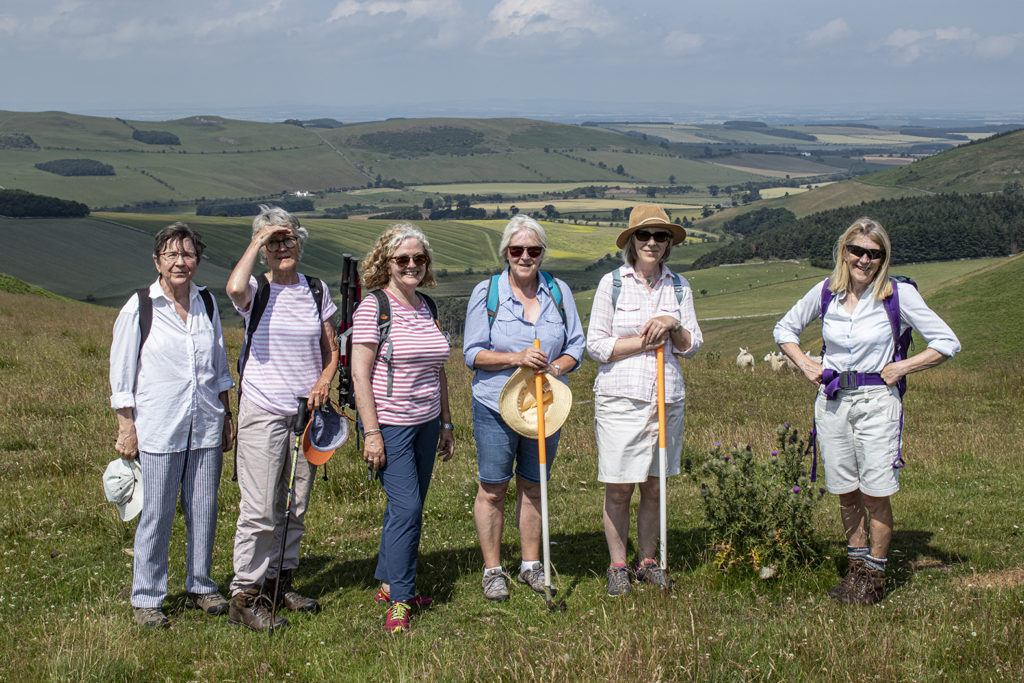ACFA Field Archaeology for All Arc-eòlas do na h-uile
Formerly the Association of Certificated Field Archaeologists, ACFA, as we are now known, was founded in 1987. Since then, our members have acquired a range of knowledge, skills and experience in archaeological field survey that has gained ACFA an enviable reputation in Scottish archaeology. As a charity, we are mainly self-funding, and we often work in conjunction with other heritage and community organisations.

A bit of history…
Founded in 1987, with the encouragement of course director Lionel Masters, by graduates of the Certificate in Field Archaeology, a qualification awarded by Glasgow University’s Department of Adult and Continuing Education, ACFA was designed to give the graduates of the course opportunities to exercise the skills and knowledge they had acquired. Read more about the early days in these two personal accounts and watch these short videos celebrating ACFA’s history and achievements.
Archaeology beyond the Gregory Building
What we do…
ACFA seeks to continue this work by carrying out field surveys in Scotland. The Association is willing to undertake non-commercial surveys at the request of private individuals, local community groups, heritage and local history societies etc. Members who participate in surveys do so in a voluntary capacity and ACFA does not charge for its services, but seeks grants and accepts donations to offset costs. All surveys undertaken are recorded and the results published in our ACFA Occasional Paper Series, lodged with Historic Environment Scotland and other public bodies. To date, ACFA has carried out over 140 surveys in Scotland in areas as widespread geographically as the Hebridean islands of Tiree, Raasay and Luing, to the Halter Burn Valley in the Borders. Have a look at our list of publications for an idea of the breadth of our work.
In 2023 we embarked on an ambitious reimagining of ACFA, opening up membership to anyone, over 16, with or without experience and planning a training programme to keep our skills fresh and provide for new members . At ACFA we learn by doing as well as more formal training and everyone is encouraged to take part in surveys.
Membership costs £20 per annum and is free for anyone in full-time education.
Some thoughts from a member…
There are many memorable moments encountered in my 30 years of field survey. One in particular stands out. I was trying to make sense of a curving revetment beside a bog. Behind was a large, vegetation-covered mound of stones. I couldn’t fathom why a curved revetment would be created beside such soft ground. Then, it dawned on me. That moment of realisation that it was a Clyde-type cairn stays with me yet.
Another highlight was my first rock art panel: three inconspicuous cups on a large stone in Glen Lochay. Five more panels were found over the years; two above my home in Kilsyth. These are exciting to find and are somewhat different from the recording numerous shieling huts and deserted settlements.
Tiree was a revelation. The preserved landscape on the high ground on the south-west of the island threw up exceptional archaeology. Round houses, hut-circles, stone tools, worked flints, cists and Hebridean square cairns were found. Latterly, a possible barrow and tidal mill were recorded. One of the most interesting finds was that of a Skaill knife. A local resident showed me where he had found fragments of pottery below Dùn nan Nighean, an Iron Age site. Here there is a midden threatened by coastal erosion and I had no reservations in pulling out a split cobble protruding from the midden matrix. It was sometime later that I was perusing an archaeological publication when lo and behold there were illustrations of prehistoric tools similar to the stone that I had retrieved: the first Skaill knife to be found on Tiree, thus extending their range from the Northern Isles, St Kilda and Islay.
The Halter Burn Valley in the Borders is another favourite survey, so different from the western islands and Highlands. Finding previously unrecorded settlement from the Bronze and Iron Ages is so rewarding.
Shieling huts (so many!) remain dear to my heart. I suppose part of the experience is the distances that must be travelled to reach them, and this brings thoughts of people in the past going to and from their grazings: a point of emotional contact in our work.
There are so many finds down the years, both interesting, exciting, and often enigmatic; exciting, for our work adds to our knowledge of our history and fills in gaps in the landscape previously not subject to the eye of the field archaeologist.
In tandem with the fieldwork, ongoing archival research also brings exciting and revealing moments. Discovering documents that link past individuals with the archaeology on the ground is rare but so rewarding.
Out on the hill, archaeological finds apart, it is the companionship of ACFA members that remains the most pleasurable aspect of field survey. Shared enthusiasm and interest in our past make our efforts so much more worthwhile.
Registered Scottish Charity SC 007099
